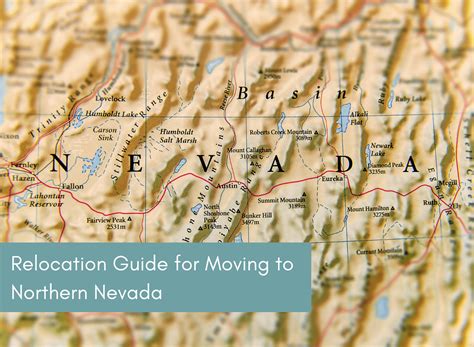Relocating to Nevada? Your Residency Questions Answered
Thinking about making the Silver State your new home? Nevada boasts stunning landscapes, a vibrant economy, and a low-tax environment, making it an attractive destination for many. But before you pack your bags, understanding Nevada residency requirements is crucial. This comprehensive guide answers your burning questions about establishing residency in Nevada.
What Constitutes Nevada Residency?
Establishing Nevada residency isn't just about moving your belongings; it's a legal process involving demonstrating a clear intent to make Nevada your permanent home. The state doesn't have a specific timeframe, but authorities generally look at a combination of factors to determine residency. This includes:
- Physical Presence: Spending a significant amount of time in Nevada is essential. While there's no magic number of days, you should be prepared to spend more than just a few weeks a year here. The more time you spend in Nevada, the stronger your claim to residency becomes.
- Domicile: This is your true, fixed, and permanent home, where you intend to remain indefinitely. It's not merely a physical location but a matter of intent. Do you consider Nevada your primary residence? Do you plan to stay long-term?
- Voter Registration: Registering to vote in Nevada demonstrates your intent to be a part of the community.
- Driver's License and Vehicle Registration: Obtaining a Nevada driver's license and registering your vehicle in Nevada are strong indicators of residency.
- Employment: Working in Nevada, even if remotely, can contribute to establishing residency, especially if you have a Nevada-based employer.
- Banking and Financial Connections: Opening bank accounts, obtaining credit cards, and managing your finances in Nevada solidify your ties to the state.
- Real Estate Ownership: Owning property in Nevada demonstrates a considerable commitment to the state.
- Tax Returns: Filing your state income tax returns in Nevada is a crucial aspect of establishing residency.
How Long Does it Take to Establish Residency in Nevada?
There's no fixed timeframe to establish Nevada residency. The Department of Motor Vehicles (DMV) often requires a minimum of 30 days of physical presence before issuing a driver's license. However, proving residency for other purposes, such as tax benefits, might require a longer period, often ranging from six months to a year or more, depending on the specific circumstances and the agency involved. It's best to consult with a tax professional or legal advisor for a personalized assessment.
What Documents Do I Need to Prove Nevada Residency?
The specific documents required will vary depending on the situation. However, generally, you'll need documentation that supports your claims of physical presence, domicile, and intent. This can include:
- Proof of Address: Utility bills, bank statements, lease or mortgage agreements, and mail addressed to your Nevada residence.
- Driver's License or State ID: Your Nevada driver's license or state-issued ID card.
- Vehicle Registration: Proof of vehicle registration in Nevada.
- Employment Records: Pay stubs, W-2 forms, or employment contracts.
- Tax Returns: Your Nevada state income tax returns.
What are the Tax Implications of Becoming a Nevada Resident?
Nevada is known for its low taxes, particularly its lack of a state income tax. This is a significant draw for many relocating to the state. However, understanding the implications goes beyond just income tax. Property taxes, sales taxes, and other potential taxes should be considered. Consult a qualified tax professional to assess your specific tax situation and ensure compliance.
Can I Maintain Residency in Another State While Living in Nevada?
Maintaining residency in another state while living in Nevada is generally difficult to prove and could have serious legal and tax consequences. The IRS and other state agencies closely scrutinize dual residency claims. You risk penalties and audits if you attempt to claim residency in two states simultaneously without a valid legal justification.
What About My Children's Residency?
Your children's residency typically follows yours. However, if they are attending school in another state, or have established independent residency, this might need to be addressed separately. Consulting a legal professional is advisable to ensure your children's residency is handled correctly.
Conclusion
Relocating to Nevada offers numerous advantages, but navigating the residency requirements is crucial. By understanding the factors that contribute to establishing residency and gathering the necessary documentation, you can successfully transition to your new life in the Silver State. Remember to consult with relevant professionals, such as tax advisors and legal experts, to ensure a smooth and compliant relocation. Careful planning and preparation will ensure a seamless transition to your new Nevada home.

